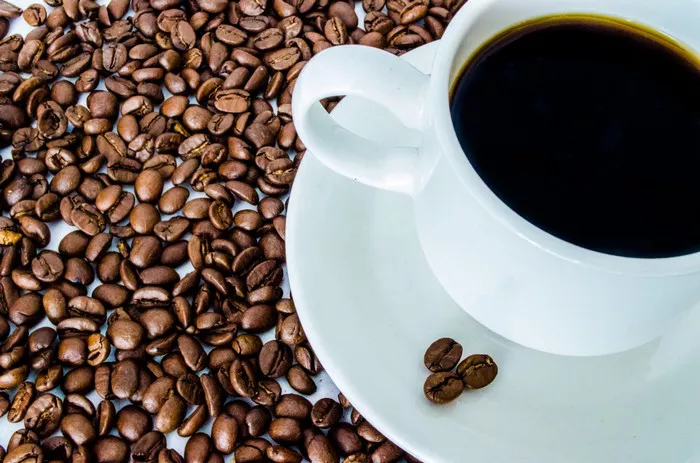In the world of coffee connoisseurs and enthusiasts, the enjoyment of a perfectly brewed cup of joe is often a sensory experience that transcends mere caffeine consumption. From the aroma that tantalizes the olfactory senses to the rich, complex flavors that dance on the palate, coffee has long been revered for its ability to provide a delightful pick-me-up any time of day. However, there is a curious phenomenon that many coffee drinkers have encountered: the bitter transformation that occurs when coffee cools down. In this article, we delve into the scientific underpinnings of why coffee turns bitter when it loses its heat, exploring the chemical reactions and molecular dynamics at play.
The Role of Temperature in Coffee Flavor
To understand why coffee becomes bitter as it cools, it’s essential to first grasp the fundamental relationship between temperature and flavor. Temperature influences the rate of chemical reactions, and in the case of coffee, it plays a crucial role in extracting desirable compounds from the coffee grounds during brewing. When hot water comes into contact with ground coffee, it initiates a process known as extraction, whereby soluble compounds such as caffeine, acids, sugars, and oils are dissolved and impart flavor to the resulting brew.
During brewing, the optimal temperature range for extraction typically falls between 195°F and 205°F (90°C to 96°C). Within this temperature range, the water effectively extracts desirable flavor compounds while minimizing the extraction of bitter-tasting compounds. However, as the brewed coffee begins to cool, the dynamics of flavor perception undergo a significant shift, leading to the emergence of bitterness.
The Chemistry of Bitterness in Coffee
The bitterness that develops in cold coffee can be attributed to several key chemical reactions that occur as the temperature decreases. One of the primary contributors to bitterness is the increased extraction of bitter-tasting compounds, such as chlorogenic acids and quinic acid, as the coffee cools. These compounds are naturally present in coffee beans and contribute to the overall flavor profile, but their intensity becomes more pronounced as the temperature drops.
Additionally, the cooling process can trigger the oxidation of certain compounds present in coffee, leading to the formation of new, more bitter compounds. For example, the oxidation of polyphenols, which are abundant in coffee, can result in the production of quinones, compounds known for their bitter taste. As the coffee cools, these reactions accelerate, amplifying the perception of bitterness.
Furthermore, the cooling of coffee can alter its pH level, shifting it towards acidity. This change in pH can enhance the perception of bitterness, as acidic conditions tend to accentuate the taste of bitter compounds. The interplay between temperature, oxidation, and acidity creates an environment ripe for the development of bitterness in cold coffee.
The Impact of Cooling on Aroma and Flavor Perception
Beyond the chemical changes that occur in cold coffee, there are also perceptual factors at play that influence how we experience its flavor. Temperature plays a crucial role in aroma release, with higher temperatures facilitating the volatilization of aromatic compounds that contribute to the coffee’s aroma. When coffee is hot, these volatile compounds are readily released into the air, enhancing the overall sensory experience.
However, as coffee cools, the rate of aroma release diminishes, resulting in a loss of aromatic intensity. This reduction in aroma can affect the perception of flavor, as aroma and taste are closely intertwined. Without the full complement of aromatic compounds to complement the taste, the bitterness of cold coffee may become more pronounced.
Furthermore, our taste perception is inherently influenced by temperature. Cold temperatures can dull the sensitivity of taste receptors on the tongue, making bitter flavors more perceptible. This phenomenon, coupled with the changes in chemical composition discussed earlier, contributes to the heightened bitterness experienced when drinking cold coffee.
Strategies to Mitigate Bitterness in Cold Coffee
While the bitterness of cold coffee may be an inevitable consequence of temperature-induced chemical reactions and perceptual shifts, there are strategies that coffee aficionados can employ to mitigate its impact. One approach is to optimize the brewing parameters to minimize the extraction of bitter compounds initially. By adjusting variables such as grind size, brewing time, and water temperature, it’s possible to produce a brew that is less prone to bitterness as it cools.
Another strategy is to explore alternative brewing methods that are specifically designed to produce a smoother, less bitter cup of cold coffee. Cold brewing, for example, involves steeping coffee grounds in cold water for an extended period, typically 12 to 24 hours. This method results in a concentrate that can be diluted to taste, offering a milder alternative to traditionally brewed coffee.
Additionally, incorporating flavor-enhancing ingredients such as milk, cream, or flavored syrups can help balance out the bitterness of cold coffee and add complexity to its flavor profile. Experimenting with different ratios and combinations can yield customized concoctions that cater to individual preferences.
Conclusion: Embracing the Complexity of Cold Coffee
In the realm of coffee appreciation, the phenomenon of bitterness in cold coffee serves as a reminder of the intricate interplay between temperature, chemistry, and sensory perception. While the cooling of coffee may accentuate its bitterness, it also unveils a wealth of nuances and complexities that enrich the drinking experience. By understanding the underlying mechanisms at work and exploring strategies to optimize flavor, coffee enthusiasts can embrace the diversity of cold coffee and savor its unique charms, bitterness and all.


